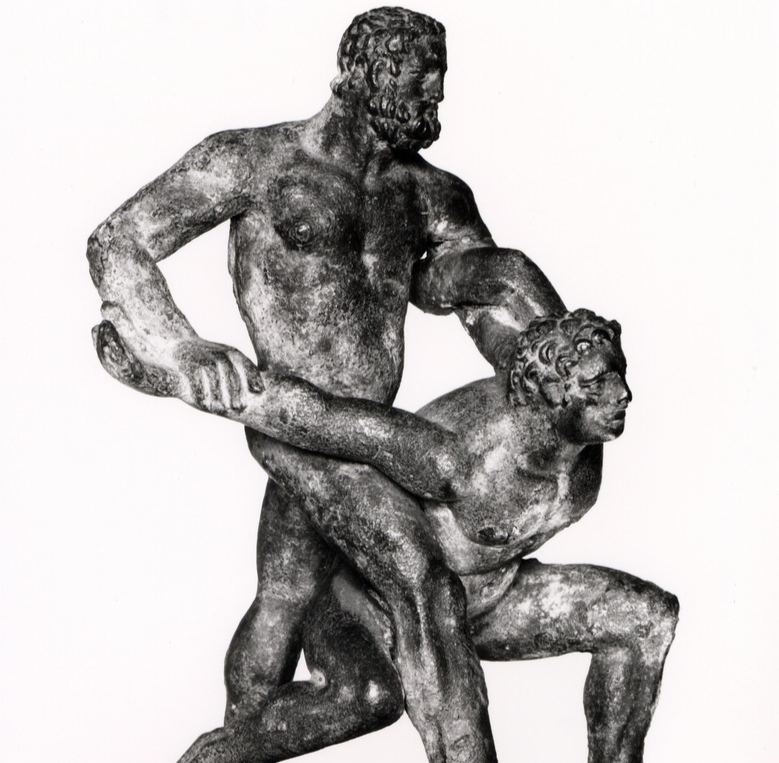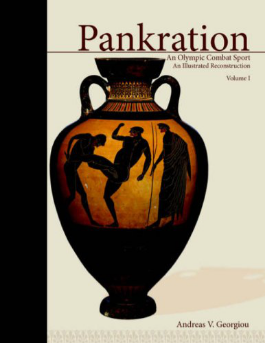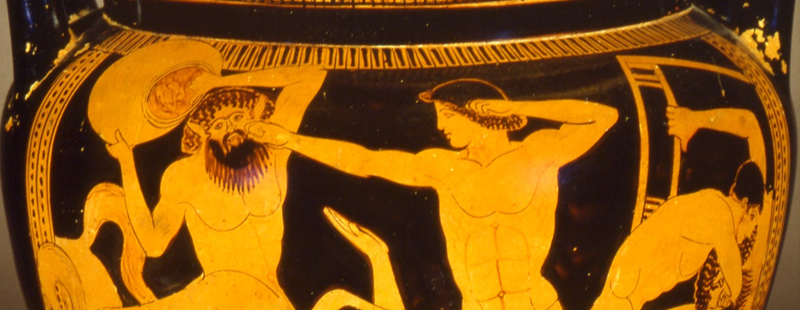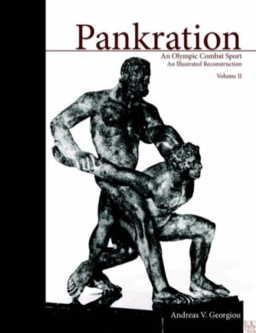Pankration - An Olympic Combat Sport Volume I
Pankration - An Olympic Combat Sport
Volume I is an illustrated reconstruction of the ancient Greek sport of pankration. This sport lasted over a millennium (from at least the seventh century BCE to the fourth
century CE) and was the most popular event in the ancient Olympic Games. In pankration, well rounded fighters used whatever worked, with minimal rules, to respond to the circumstances of a specific
competition and, with no restrictions, to fight in actual battle. The total combat sport of pankration was effectively mixed martial arts (MMA) competition, or—as Aristotle describes it—a combination
of boxing and wrestling. There are considerations to reintroduce it in the modern Olympic Games.
The book draws information on pankration from all the primary sources—from the literature and the products of the visual arts of antiquity. Volume I traces the origin and path of pankration in Greek
mythology and history; addresses the physical and psychological characteristics of successful pankratiasts in antiquity; details the rules of competition; and discusses fighting style,
specialization, and preparation of the ancient practitioners of this total combat sport.
This book’s comprehensive research renders it a reference for students of the topic of pankration and, more generally, of combat sport in ancient Greece. The book also provides practitioners and
enthusiasts of combat sports/martial arts useful information and lessons from the ancient practice of pankration. It is valuable reading for those interested in modern mixed martial arts (MMA)
competition.
Readers will find in the book both new information about the Western total combat sport that preceded the development of the Asian traditions, and tens of admirable artistic representations
of pankration from ancient Greek vases and sculptures.
Pankration - An Olympic Combat Sport Volume II
Pankration - An Olympic Combat Sport Volume II
is the companion volume to Volume I. The present volume describes in detail the fighting techniques employed in pankration, including the fighting stance, defensive moves, strategy and
tactics, use of pressure points, strikes, locks, chokes, throws, and takedowns, as well as counters to these techniques.
This book’s comprehensive research renders it a reference for students of the topic of pankration and, more generally, of combat sport in ancient Greece. Due to its focus on the specifics of actual
fighting techniques, this book is particularly useful to practitioners and enthusiasts of combat sports/martial arts, providing useful information and lessons from the ancient practice of pankration.
It is especially valuable reading for those interested in modern mixed martial arts (MMA) competition.
Readers will find in the book both new information about the Western combat sport that preceded the development of the Asian traditions, and tens of admirable artistic representations
of pankration from ancient Greek vases and sculptures.



